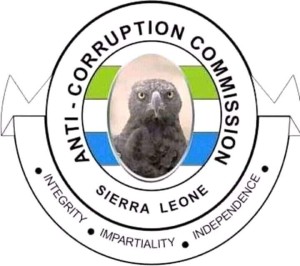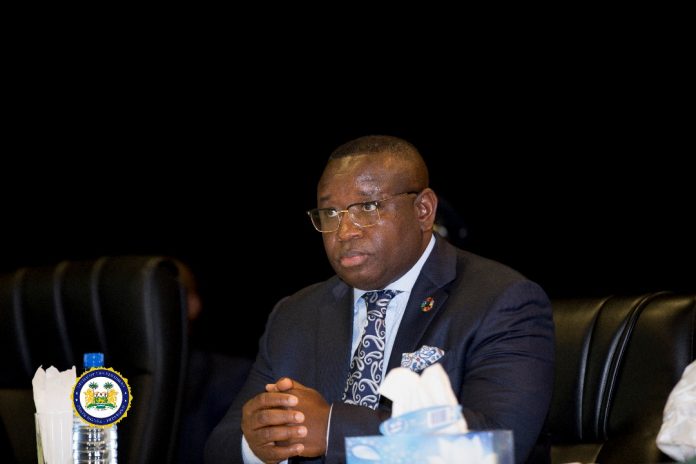Corruption impacts most heavily on the poor and vulnerable members in society, but underdevelopment affects the future growth and prosperity of all people.
Thus, fighting on behalf of the disempowered and ensuring Sierra Leone’s development means that the responsibility for dealing with corruption falls squarely on all, from the Government and donors to civil society and citizens.
Corruption is a pervasive problem in both the developed and developing world. It is endemic in most African societies but is worst in countries where:
• Institutions such as the legislature and judiciary are weak;
• The rule of law is not strictly enforced;
• Political patronage is the norm;
• The independence and professionalism of the public and private sectors have been eroded; and
• Civil society lacks the means to hold perpetrators to account.
In recent years, the problem has gained much interest due primarily to a series of high level corruption cases in industrialized countries, an increasing awareness of the cost of corruption throughout the world and the practical and economic changes many countries are undergoing.
In Africa however, corruption is a development issue, as it is a crime against development, democracy, education, prosperity, public health and justice – what many would consider the pillars of social well-being.
While Government commits large sums to addressing the plethora of problems hindering development, corruption remains a major obstacle to achieving much needed progress. It is therefore imperative that anti-corruption measures form part of the country’s development agenda to ensure future growth and prosperity.
Corruption is defined as the abuse of entrusted power for private gain, in public and private sectors. Countries are scored based on assessments of the prevalence of bribery of public officials, embezzlement of public funds, kickbacks in public procurement, and questions about the effectiveness of public anti-corruption efforts.
Realizing the SDGs puts the effects of corruption in perspective. A bribe demanded by a teacher to enroll a girl at a ‘free’ elementary school could irreversibly block that girl’s education and future opportunities. A hike in the local cost of drugs might put treatment out of reach of sick people, leaving them unable to work and earn a living. Amounts paid as bribes are often quite small, but the implicit costs are great.
Where bribes are paid, there is a lower literacy rate. Bribery is also associated with higher maternal deaths, regardless of the country’s wealth or how much it invests in health.
The effects of bribery and kickbacks in the education, water and healthcare sectors represent the implicit costs of corruption. These incidents transform corruption into a “regressive tax” on services that the poor cannot afford, making basic services unattainable.
Thus, it is the poor and vulnerable who suffer most due to corruption as they are more reliant on Government services and public systems to satisfy their most basic needs.
In addition to the bribes that are demanded of those who cannot afford them, corruption results in the deviation of funds intended for development and undermine Government’s ability to provide basic services. It also undermines the rule of law, feeding inequality and injustice, discouraging foreign investment, further impeding development.
A lack of transparency, integrity and accountability is related to economic under-performance and fetters progress toward poverty eradication.
In addition to the implicit costs of corruption due to bribery, there are also hidden costs associated with corruption. The costs of a form of corruption termed “quiet corruption” by the World Bank, adversely affect the poor in particular.
The World Bank’s Africa Development Indicators 2010 shows that civil servants’ failure to deliver Government-run health, education or agricultural services, further jeopardizes Africa’s long-term development.
A holistic approach to the problem of corruption includes a comprehensive array of anti-corruption strategies ranging from good governance and structural reform to the participation of civil society.
Its four pillars – prevention, criminalization, asset recovery and international co-operation serve to promote open, honest and efficient decision-making, fair competition and ethical procurement systems, supporting effective Government development strategies.
Let Us Give President Bio and ACC A Very Big Hand
Corruption: A crime against development…




